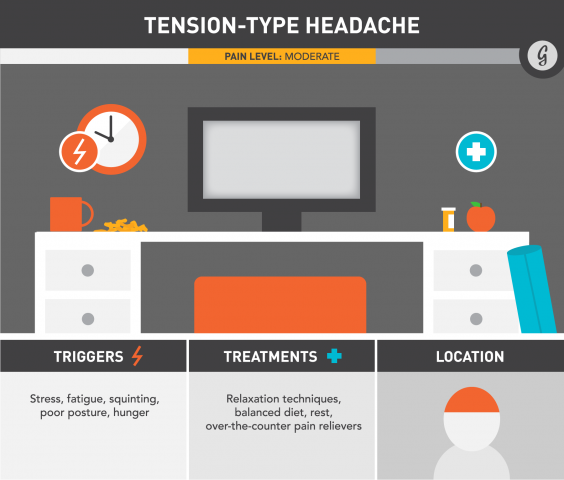Headaches. Everyone has them, everyone hates them, and it seems like everything causes them. They always occur in the most inconvenient of times and when you need them least. But what exactly is it that is causing this constant pounding to occur? The list of causes could go on and on but the most common type of headache is the tension headache.
According to Medicine Net, a tension headache is a “short lived, infrequent, mild headache.” They are often referred to as stress headaches as well. But what is it that causes they annoyances in all of our lives? As a college student, you’ll probably have a tension headache more times than not. They develop from lack of sleep, increased stress, eye strain, over exertion and anxiety. So pretty much our day to day lives. For me personally, there is no doubt in my mind that my tension headaches develop from lack of sleep. It is even possible for some people to experience these for a period of about 15 days, which are referred to as chronic tension headaches, something I hope to never experience.
So since we all suffer from these pain inconveniences, how can we possibly treat them? We all know the normal over-the-counter meds, such as Advil, aspirin, and acetaminophen. Relaxation techniques and a good diet can also contribute to a lessened amount of tension headaches. But the key to controlling these headaches is identifying the triggers and doing all possible to avoid them. I’m not one to suffer from serious migraines but I am close with people who do, and for them, identifying triggers is extremely vital. And although this is a much more minor issue, it can still be helpful for the busy life that we are trying to maintain.
Sources:
http://greatist.com/grow/headache-types-causes-treatments


 Like many topics up for debate,
Like many topics up for debate,  rding to many, the answer is yes.
rding to many, the answer is yes.

